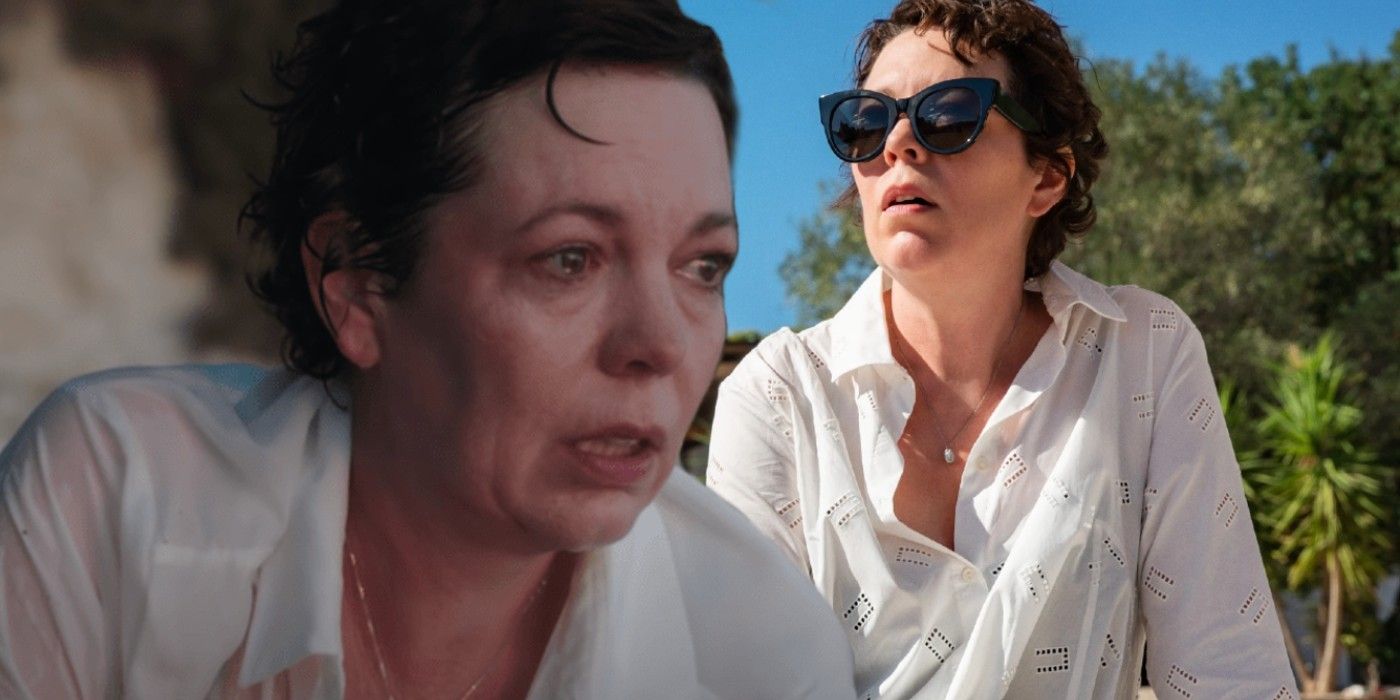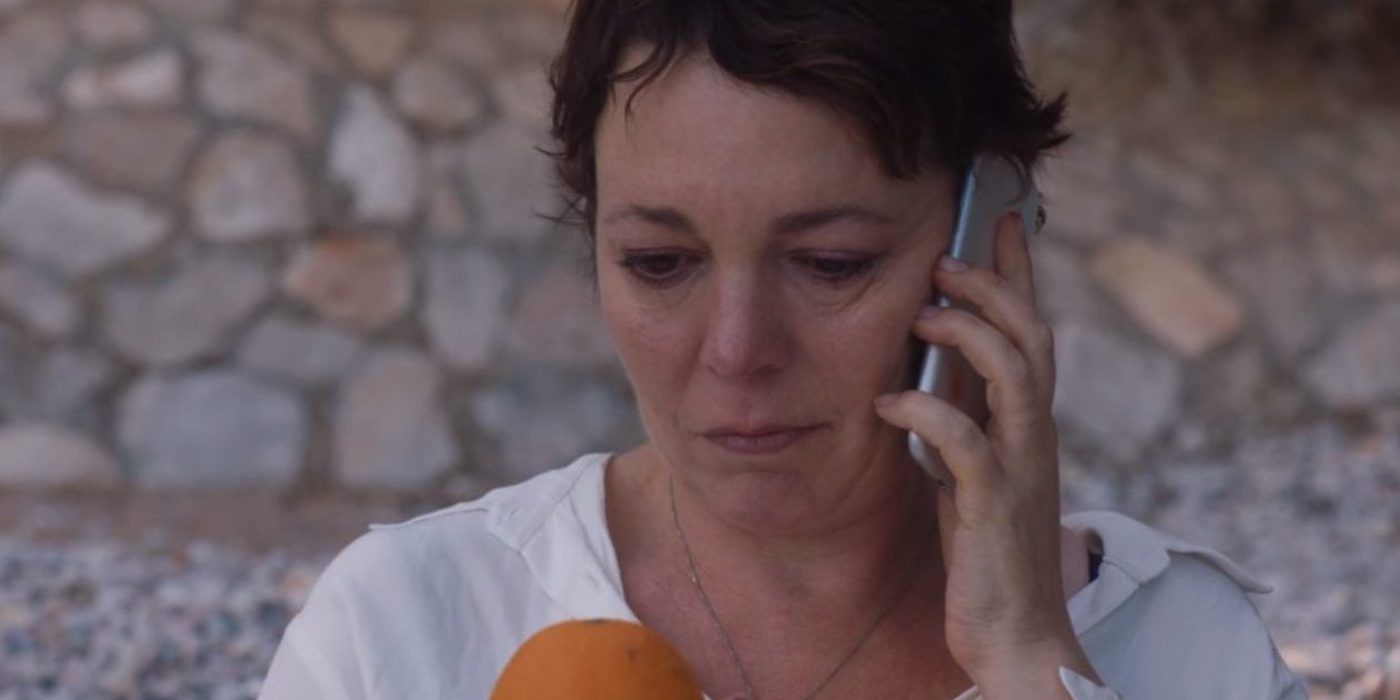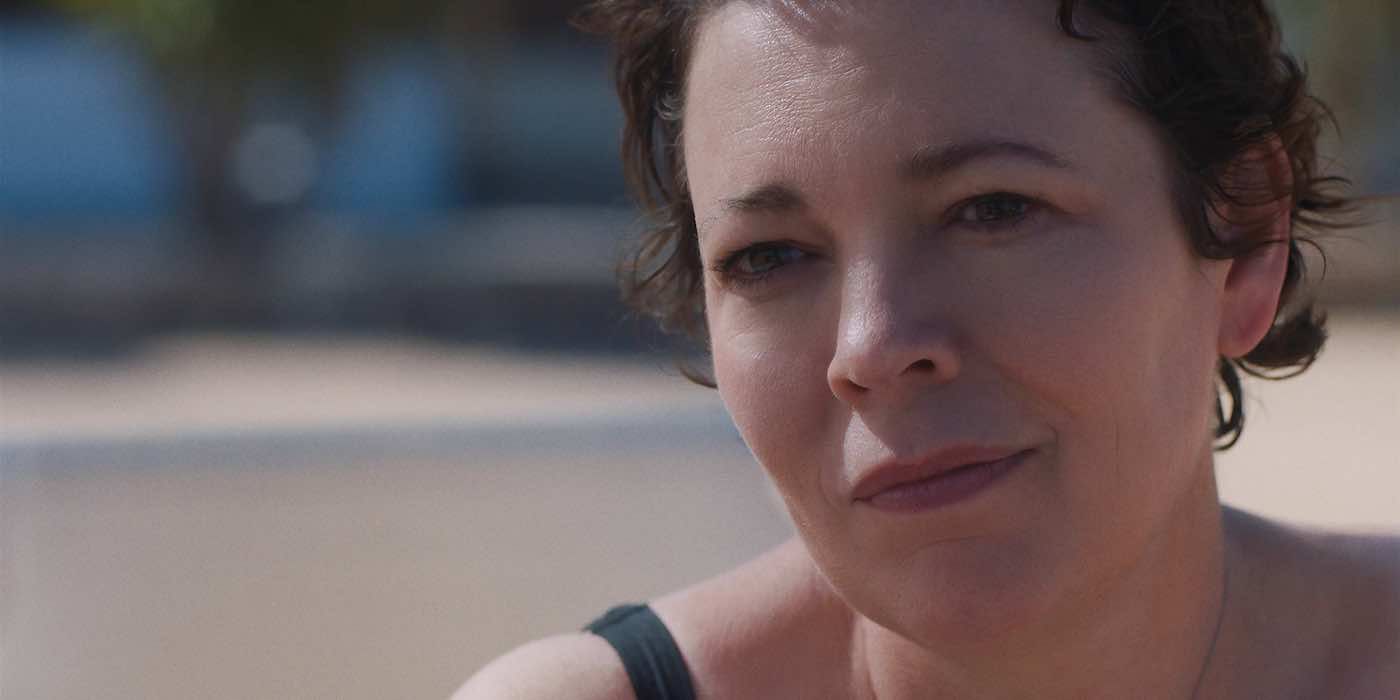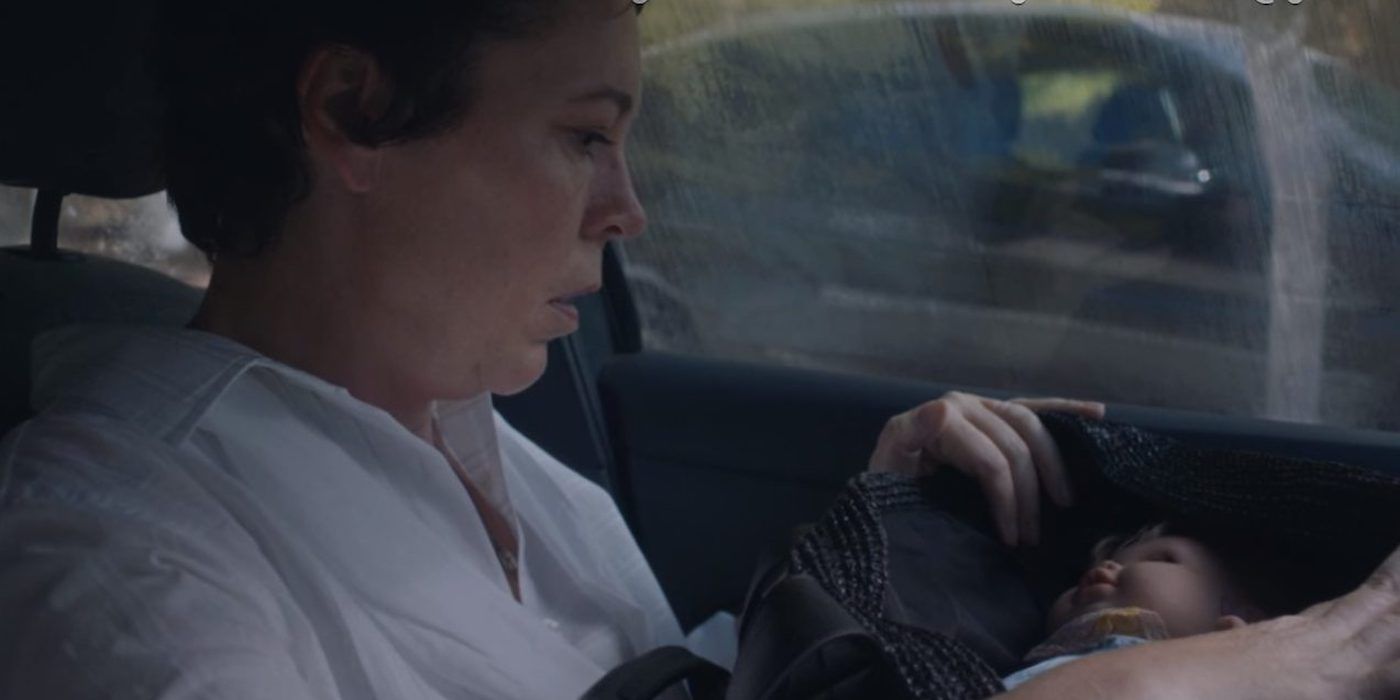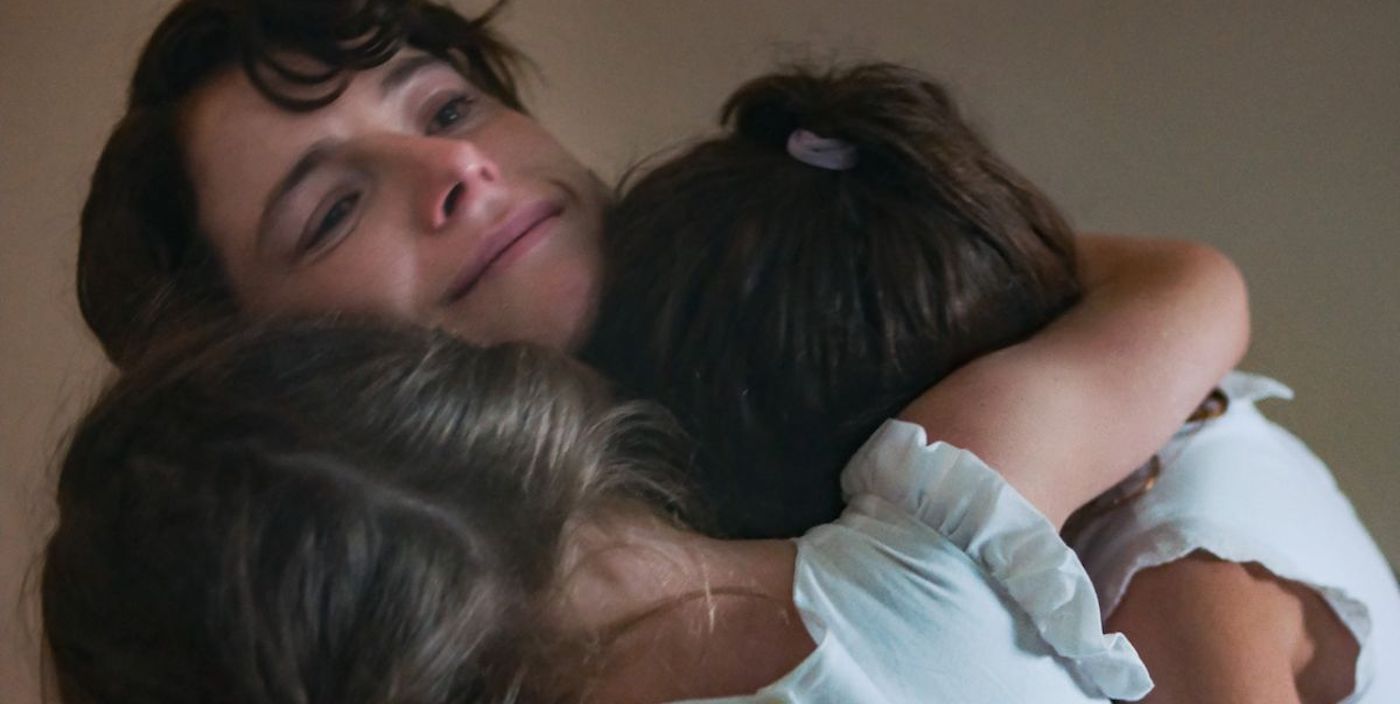Warning! SPOILERS ahead for The Lost Daughter
Netflix’s The Lost Daughter’s ending has left many viewers wondering if Leda is dead or alive and what the movie’s message is. The Lost Daughter is the debut film by writer and director Maggie Gyllenhaal and is based on the book by the same name by author Elena Ferrante. Gyllenhaal’s adaptation is based closely on Ferrante’s book, which also ends ambiguously, with both the film and the book offering a visceral and heartbreaking journey into both motherhood and womanhood.
The Lost Daughter, new to Netflix December 31st, follows Leda on a solo holiday in Greece where she experiences a strange connection with a young mother, Nina, vacationing on the island with her dangerous, gangster family. Leda watches Nina and her young daughter closely, their interaction sparking memories of her rocky relationship with her own daughters, Bianca and Martha. When Nina’s daughter, Elena, goes missing, Leda is the one to find her and return her to the family, but Leda steals the girl’s beloved doll—a move that, when discovered, brings Nina to stab Leda the night before Leda is to return home.
It is unclear in The Lost Daughter ending, however, if Leda is dead and the viewer is watching her in some sort of afterlife, or if she did, in fact, survive the stab wound inflicted by Nina (played by Dakota Johnson from the brutally-reviewed Fifty Shades Freed). With the film’s message left open to interpretation, The Lost Daughter is something of a psychological expedition, with the film trekking through Leda’s psyche and posing questions about motherhood that are at once necessary and taboo. Here are possible explanations for what happens in The Lost Daughter ending.
What Happens at the End of The Lost Daughter?
Nursing her wound, Leda tries to drive herself to the airport that night and crashes her car, stumbling to the beach before collapsing at the water’s edge. In The Lost Daughter’s ending scene, Leda wakes up the following morning on the beach. She calls her daughter Bianca as she fingers her wound. Bianca answers and calls for Leda’s other daughter, Martha, who is with Bianca at the time of the phone call. Bianca voices concern for Leda saying that she “called so many times” and “thought she was dead.” Leda (played by Olivia Colman, The Crown’s second Queen Elizabeth), replies, “Dead? No, I’m alive actually.” Leda then cradles the phone as she begins to peel an orange and continues talking to her daughters.
Does Leda Die at the End?
By far the biggest question about The Lost Daughter ending is if Leda is dead in the final scene. When Leda wakes, her first thought is of her daughters as she recalls a memory of her peeling oranges with them. The orange is a major through-line in The Lost Daughter, with young Leda and her daughters chanting “peel it like a snake, don’t let it break” as they peel the fruit in one long curl. While the scenes stand out because they are pleasant memories for young Leda (played by I’m Thinking of Ending Things’ Jessie Buckley), the act of peeling the oranges without the peel breaking is what is important as it points to Leda’s distaste for chaos and imperfection. That Leda returns to this memory in The Lost Daughter ending while peeling the orange on the beach, in addition to her saying, “Dead? No, I’m alive actually,” may suggest that Leda is alive, has finally accepted her role as a mother, and has thus achieved the perfect peel.
The orange’s inexplicable appearance in The Lost Daughter ending, however, provokes the idea that Leda is dead on the beach. When Leda stumbles from her car in the night, she is carrying nothing on her person. Then, mysteriously, in the final scene of the film, she has both her cell phone and the orange.
Furthermore, it is highly significant when Colman’s character (a character that reflects the intricate attention Colman brings to another of her recent characters: Susan Edwards in Landscapers) calls her daughter in the final scene (especially considering her daughters are together at the time), as it is the first and only time in the film that Leda initiates her relationship with them. Though Martha calls Leda in the film, at no point throughout the film does Leda willingly initiate her role as a mother. Motherhood is something that Leda seems to withstand or, at best, manage throughout the film, even returning to her daughters after years of absence out of selfish motives.
Interestingly, the final line in Ferrante’s book is “I’m dead, but I’m fine,”—a line that Gyllenhaal (who is already an incredibly talented actress and sister to Jake Gyllenhaal) changed when writing The Lost Daughter ending. Why Gyllenhaal changed the line is unclear, but both lines could be construed as Leda speaking about the peace she has found in death, an idea supported by Leda’s all-white clothing. Similarly, while Leda’s wound is still apparent and could be a testament to her mortality with its presence signifying that she is still alive in The Lost Daughter ending, the wound could also still be present after Leda is dead because, in the afterlife, Leda believes she has survived the wound, with her “survival” offering her the only chance she has at closure with her daughters.
Why Does Leda Steal the Doll?
Another key moment from The Lost Daughter is when Leda steals the doll. Just before Nina’s daughter, Elena goes missing, Leda watches Elena abusing the doll while her parents, Nina and Toni (played by Oliver Jackson-Cohen who played Adrian in The Invisible Man) fight nearby. The young girl bites the doll’s face, an act that deeply affects Leda and reminds her of Bianca similarly abusing Leda’s childhood doll.
After Leda steals the doll, she cleans it, buys it new clothes, and sleeps with it—a process that could be interpreted as her now yearning to provide the maternal care she was unable or unwilling to give to her daughters in her youth. Thus, the worm that crawls out of the doll’s mouth while Leda is diligently trying to rid it of water could symbolize that Leda will never be able to truly salvage her relationship with her daughters. Conversely, the worm could mean that Leda has finally purged herself through her care for the doll and is thus finally psychologically ready for motherhood—a theory substantiated by Leda’s self-awareness when she confesses that she is a “selfish person” and an “unnatural mother.” (Interestingly, 2021’s horror film Lamb also deals with maternal grief and loss, with the main character adopting a lamb-human).
Alternatively, when Leda steals the doll in The Lost Daughter ending, it could be due to the trauma Leda felt during motherhood. Leda may have internalized Bianca’s assault on her doll—a theory that is furthered by Bianca’s physical abuse of young Leda when she purposefully pulls Leda’s hair and hits her repeatedly throughout flashbacks. Young Leda’s smashing of the doll may be symbolic of her feelings of being smashed or broken by motherhood. Her care of the doll later in her life then, maybe eluding to a type of catharsis, with Leda tending to the wounds she suffered throughout motherhood. Regardless of the motive behind it, the act of stealing the doll is simultaneously cruel—as Leda seems ambivalent to the pain she has caused Nina's daughter and the rest of the family (Succession’s Dahmara Dominczyk plays Nina’s sister, Callie)—and self-serving, giving Leda’s character a duplicitousness that is deeply moving and thought-provoking in The Lost Daughter.
Who is the Lost Daughter?
The Lost Daughter never clearly defines to whom the film’s title is referring as being the lost daughter, however, Leda and Nina’s bond surfaces through the unspeakable suffering they both feel under the incredible burden of motherhood. Both characters struggle with their own identities after the responsibility of motherhood comes upon them—a theme that is hugely understated and misunderstood throughout today’s society. In all that Maggie Gyllenhaal (who also directed a short included in Homemade with The Lost Daughter and Dopesick actor Peter Sarsgaard) didn’t say in The Lost Daughter, the message of the film is that while every mother starts out a daughter, not all daughters become "mothers" in the idealistic sense. Both Nina and Leda are mothers that are still daughters, lost in the struggles of motherhood and the loss of their personal identities.
Furthermore, The Lost Daughter confronts the idea that motherhood comes inherently to every mother and resists the idea that individualism as women and personal flaws die upon motherhood. Thus, The Lost Daughter provokes the idea that “the lost daughter” is, in fact, every woman—forever themselves, with all their fortes and flaws, despite society’s determination of their designated roles.

